From Science:
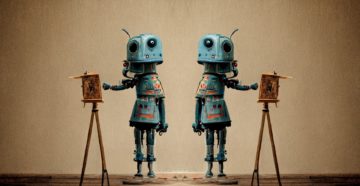 The capabilities of a new class of tools, colloquially known as generative artificial intelligence (AI), is a topic of much debate. One prominent application thus far is the production of high-quality artistic media for visual arts, concept art, music, and literature, as well as video and animation. For example, diffusion models can synthesize high-quality images (1), and large language models (LLMs) can produce sensible-sounding and impressive prose and verse in a wide range of contexts (2). The generative capabilities of these tools are likely to fundamentally alter the creative processes by which creators formulate ideas and put them into production. As creativity is reimagined, so too may be many sectors of society. Understanding the impact of generative AI—and making policy decisions around it—requires new interdisciplinary scientific inquiry into culture, economics, law, algorithms, and the interaction of technology and creativity.
The capabilities of a new class of tools, colloquially known as generative artificial intelligence (AI), is a topic of much debate. One prominent application thus far is the production of high-quality artistic media for visual arts, concept art, music, and literature, as well as video and animation. For example, diffusion models can synthesize high-quality images (1), and large language models (LLMs) can produce sensible-sounding and impressive prose and verse in a wide range of contexts (2). The generative capabilities of these tools are likely to fundamentally alter the creative processes by which creators formulate ideas and put them into production. As creativity is reimagined, so too may be many sectors of society. Understanding the impact of generative AI—and making policy decisions around it—requires new interdisciplinary scientific inquiry into culture, economics, law, algorithms, and the interaction of technology and creativity.
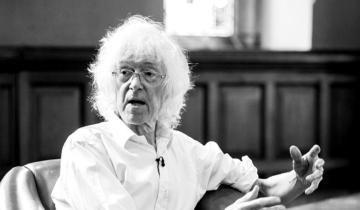 Parfit never became a well-known public intellectual, but within English-speaking academe he is acknowledged as one of the most important philosophers of the late 20th century. He made his name with a single journal paper that breathed new life into an old problem that had drifted into obscurity, mainly because no one had anything new to say about it. The problem was: what needs to be true to correctly identify a person as the same person at two different times?
Parfit never became a well-known public intellectual, but within English-speaking academe he is acknowledged as one of the most important philosophers of the late 20th century. He made his name with a single journal paper that breathed new life into an old problem that had drifted into obscurity, mainly because no one had anything new to say about it. The problem was: what needs to be true to correctly identify a person as the same person at two different times? Biology faces a grave threat from “progressive” politics that are changing the way our work is done, delimiting areas of biology that are taboo and will not be funded by the government or published in scientific journals, stipulating what words biologists must avoid in their writing, and decreeing how biology is taught to students and communicated to other scientists and the public through the technical and popular press. We wrote this article not to argue that biology is dead, but to show how ideology is poisoning it. The science that has brought us so much progress and understanding—from the structure of DNA to the green revolution and the design of COVID-19 vaccines—is endangered by political dogma strangling our essential tradition of open research and scientific communication. And because much of what we discuss occurs within academic science, where many scientists are too cowed to speak their minds, the public is largely unfamiliar with these issues. Sadly, by the time they become apparent to everyone, it might be too late.
Biology faces a grave threat from “progressive” politics that are changing the way our work is done, delimiting areas of biology that are taboo and will not be funded by the government or published in scientific journals, stipulating what words biologists must avoid in their writing, and decreeing how biology is taught to students and communicated to other scientists and the public through the technical and popular press. We wrote this article not to argue that biology is dead, but to show how ideology is poisoning it. The science that has brought us so much progress and understanding—from the structure of DNA to the green revolution and the design of COVID-19 vaccines—is endangered by political dogma strangling our essential tradition of open research and scientific communication. And because much of what we discuss occurs within academic science, where many scientists are too cowed to speak their minds, the public is largely unfamiliar with these issues. Sadly, by the time they become apparent to everyone, it might be too late.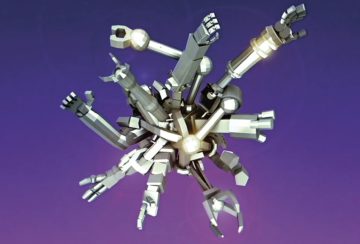 New technologies can change the global balance of power. Nuclear weapons divided the world into haves and have-nots. The Industrial Revolution allowed Europe to race ahead in economic and military power, spurring a wave of colonial expansion. A central question in the artificial intelligence revolution is who will benefit: Who will be able to access this powerful new technology, and who will be left behind?
New technologies can change the global balance of power. Nuclear weapons divided the world into haves and have-nots. The Industrial Revolution allowed Europe to race ahead in economic and military power, spurring a wave of colonial expansion. A central question in the artificial intelligence revolution is who will benefit: Who will be able to access this powerful new technology, and who will be left behind? In “Monet/Mitchell: Painting the French Landscape,” on view at the St. Louis Art Museum through June 25, the enduring impact of Monet’s vision hits hard. I mean both his literal and artistic vision—these were inextricable for the plein air painter. The show highlights the rhymes between his work and that of the American Abstract Expressionist Joan Mitchell (1925–1992), focusing specifically on works both artists made in the gardens of Vétheuil, in northern France.
In “Monet/Mitchell: Painting the French Landscape,” on view at the St. Louis Art Museum through June 25, the enduring impact of Monet’s vision hits hard. I mean both his literal and artistic vision—these were inextricable for the plein air painter. The show highlights the rhymes between his work and that of the American Abstract Expressionist Joan Mitchell (1925–1992), focusing specifically on works both artists made in the gardens of Vétheuil, in northern France. Cormac McCarthy’s work means a lot to me, though when I try to explain exactly what, I find myself unusually stymied; my affinity for him doesn’t make all that much sense to me. What connection do I have with the landscapes he conjures? What knowledge do I have of the kind of violence that is the subject and the fabric of many of his books? What place do I find in a world that is, among other things, nearly entirely masculine, hostile, rife with true desperation? The answer is none—unlike with much of my reading, I do not seek a mirror in McCarthy’s worldview—and yet there is something in its aesthetic articulation that has always resonated with me. (I have a curious memory of reading The Road over my mom’s shoulder when I must have been about ten.) I have a passage from All The Pretty Horses saved on my desktop, which I have revisited often and send around now and again, and which I cannot quote in full here but which ends:
Cormac McCarthy’s work means a lot to me, though when I try to explain exactly what, I find myself unusually stymied; my affinity for him doesn’t make all that much sense to me. What connection do I have with the landscapes he conjures? What knowledge do I have of the kind of violence that is the subject and the fabric of many of his books? What place do I find in a world that is, among other things, nearly entirely masculine, hostile, rife with true desperation? The answer is none—unlike with much of my reading, I do not seek a mirror in McCarthy’s worldview—and yet there is something in its aesthetic articulation that has always resonated with me. (I have a curious memory of reading The Road over my mom’s shoulder when I must have been about ten.) I have a passage from All The Pretty Horses saved on my desktop, which I have revisited often and send around now and again, and which I cannot quote in full here but which ends: You, a sensitive ingénue freshly arrived from the subcontinent, face the gleaming metropolis for the first time. Having hardened yourself to the feelings of your family, you have abandoned a prospective career as clerk in a lawyer’s office and a stable relationship with your third cousin, Padma, for a life of self-actualisation.
You, a sensitive ingénue freshly arrived from the subcontinent, face the gleaming metropolis for the first time. Having hardened yourself to the feelings of your family, you have abandoned a prospective career as clerk in a lawyer’s office and a stable relationship with your third cousin, Padma, for a life of self-actualisation.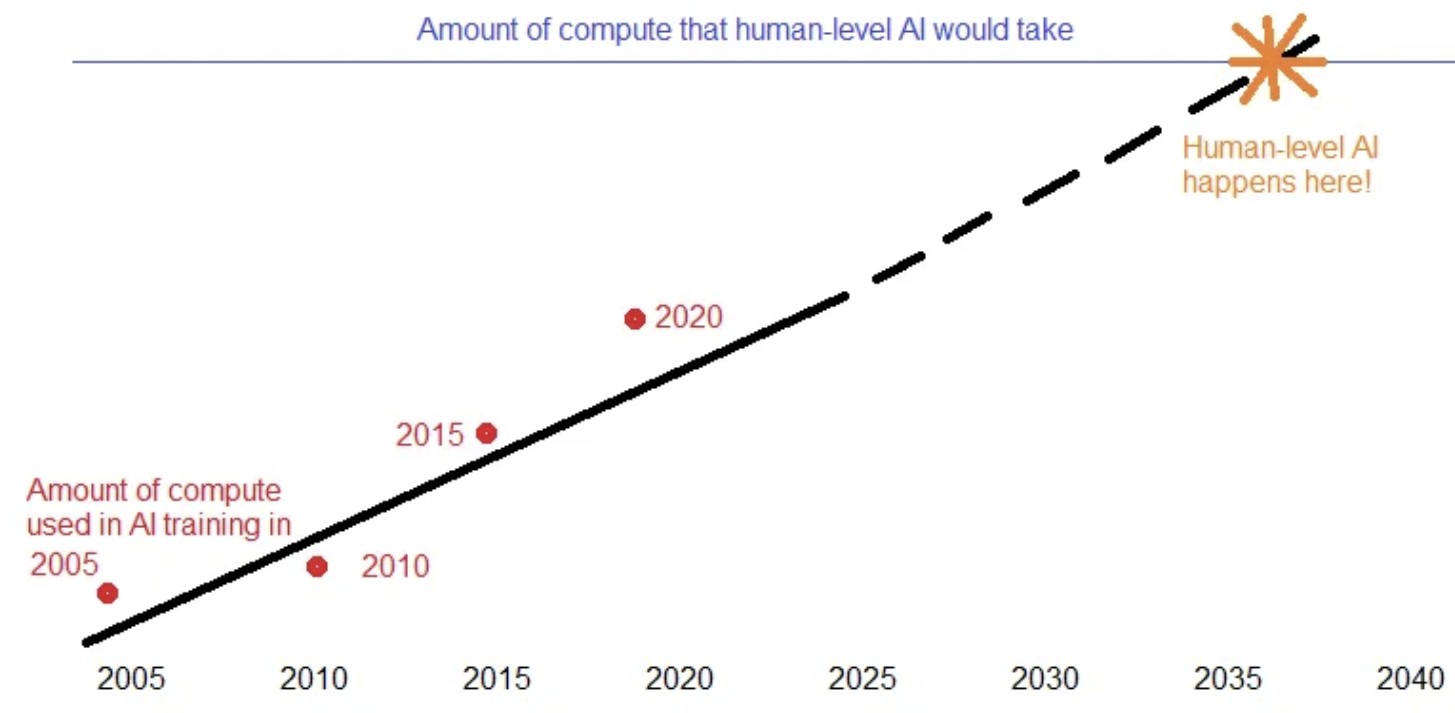 Last year
Last year  We live in an age of inequality—or so we’re frequently told. Across the globe, but especially in the wealthy economies of the West, the gap between the rich and the rest has widened year after year and become a chasm, spreading anxiety, stoking resentment, and roiling politics. It is to blame for everything from the rise of former U.S. President Donald Trump and the Brexit vote in the United Kingdom to the “yellow vest” movement in France and the recent protests of retirees in China, which has one of the world’s highest rates of income inequality. Globalization, the argument goes, may have enriched certain elites, but it hurt many other people, ravaging one-time industrial heartlands and making people susceptible to populist politics.
We live in an age of inequality—or so we’re frequently told. Across the globe, but especially in the wealthy economies of the West, the gap between the rich and the rest has widened year after year and become a chasm, spreading anxiety, stoking resentment, and roiling politics. It is to blame for everything from the rise of former U.S. President Donald Trump and the Brexit vote in the United Kingdom to the “yellow vest” movement in France and the recent protests of retirees in China, which has one of the world’s highest rates of income inequality. Globalization, the argument goes, may have enriched certain elites, but it hurt many other people, ravaging one-time industrial heartlands and making people susceptible to populist politics.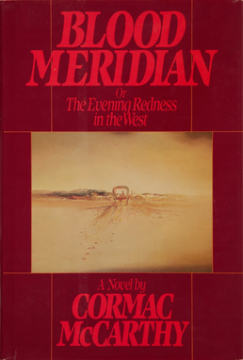 Cormac McCarthy’s Blood Meridian (1985) seems to me the authentic American apocalyptic novel, more relevant now than when it was written. The fulfilled renown of Moby-Dick and of As I Lay Dying is augmented by Blood Meridian, since Cormac McCarthy is the worthy disciple both of Melville and of Faulkner. I venture that no other living American novelist, not even Pynchon, has given us a book as strong and memorable as Blood Meridian, much as I appreciate his Crying of Lot 49, Gravity’s Rainbow, and Mason & Dixon. McCarthy himself has not matched Blood Meridian, but it is the ultimate Western, not to be surpassed.
Cormac McCarthy’s Blood Meridian (1985) seems to me the authentic American apocalyptic novel, more relevant now than when it was written. The fulfilled renown of Moby-Dick and of As I Lay Dying is augmented by Blood Meridian, since Cormac McCarthy is the worthy disciple both of Melville and of Faulkner. I venture that no other living American novelist, not even Pynchon, has given us a book as strong and memorable as Blood Meridian, much as I appreciate his Crying of Lot 49, Gravity’s Rainbow, and Mason & Dixon. McCarthy himself has not matched Blood Meridian, but it is the ultimate Western, not to be surpassed.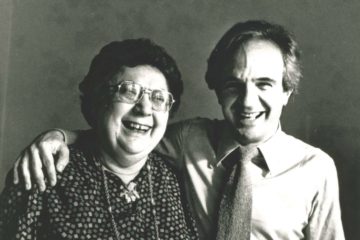 History is filled with secret heroes whose behind-the-scenes actions are essential to the exploits of public-facing heroes. Bringing these figures out of the shadows is a key role of historians. Helen Scott is one of those hidden heroines. Scott was the American film publicist, then translator, best known as
History is filled with secret heroes whose behind-the-scenes actions are essential to the exploits of public-facing heroes. Bringing these figures out of the shadows is a key role of historians. Helen Scott is one of those hidden heroines. Scott was the American film publicist, then translator, best known as 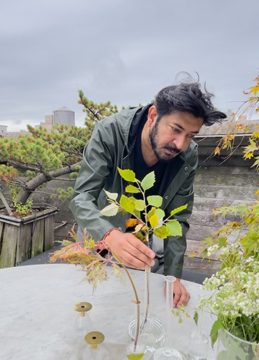 Q\ You deal with a metaphysical question in the book, about new humans.
Q\ You deal with a metaphysical question in the book, about new humans.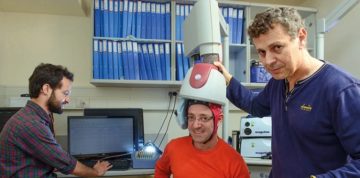 Galit Blecher never wanted to start smoking, but during her service in the Israeli military, she succumbed. “Everyone in Israel smoked in the army,” she says. Having held out for more than one year, an especially tedious posting broke her resolve. “I was driving three hours through the desert, several times a week,” she says. “I was falling asleep.”
Galit Blecher never wanted to start smoking, but during her service in the Israeli military, she succumbed. “Everyone in Israel smoked in the army,” she says. Having held out for more than one year, an especially tedious posting broke her resolve. “I was driving three hours through the desert, several times a week,” she says. “I was falling asleep.”